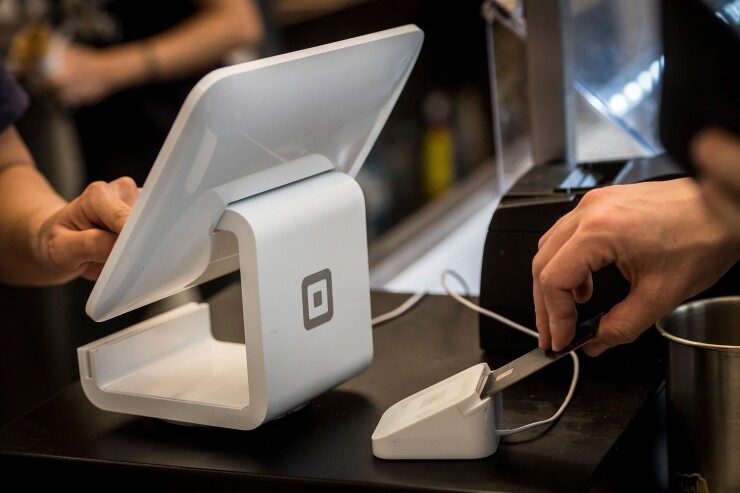Wall Street Journal
Wrong number
Square is being sued by a California man who says the payments company violated privacy laws when it accidentally forwarded a digital receipt containing information about his medical history to one of his friends. The man “paid a bill in early May at a health-care provider that used a Square device to process credit cards. Shortly thereafter, Square allegedly sent a text message with information about the treatment he received to the friend, an act that his attorneys said was

“Misfired receipts issued by Square have ruined surprise gifts, spilled secrets, informed spouses of the spending habits of their significant others and unnerved consumers who wondered how stores got their contact information when they don’t remember providing it,” the paper
New spots
International banks, including Wells Fargo and Standard Chartered, “have created new chief financial officer positions in continental Europe to satisfy regulatory requirements that will kick in once Britain leaves the European Union. Regulations and frameworks that currently govern the U.K.’s financial sector — including the system known as passporting that lets U.K.-based banks offer their services across Europe — will no longer apply once the U.K. has left the bloc. That has prompted financial services firms that manage their European operations from London to apply for new banking licenses or expand their business on the continent
The ties that bind
Bank of America agreed to lend $90 million to one of the largest private prisons over the next five years, shortly before it announced it would end lending to the industry. The incident demonstrates that “cutting ties with entire industries has
Financial Times
Opportunity down under
Australia’s Big Four banks “face an unusual threat to their cozy oligopoly: cashed-up foreign rivals.” HSBC, ING, Rabobank and Citigroup — “which has built up A$14 billion in assets since becoming one of the first foreign banks to be granted a banking license in the mid-1980s” — are among the banks
“This comes as Australia’s big four — Commonwealth Bank of Australia, National Australia Bank, ANZ Bank and Westpac — are struggling to grow or are even shrinking … as they struggle to rebuild their reputation after a Royal Commission inquiry that exposed widespread misconduct.”
At the same time, the Big Four, which control more than 85% of the market in nearby New Zealand, may be forced to sell their subsidiaries there, “scale back investment or increase the cost of loans if the Reserve Bank of New Zealand moves forward with a plan to dramatically increase the amount of capital they must hold.” The Reserve Bank has proposed requiring banks to “hold enough capital to withstand a once-in-200-years crisis, putting them among the highest-capitalized banks in the world.” The Australian banks “told the RBNZ that its plan
Rethinking privacy
Central banks should issue digital currencies of their own in order to “
The idea of a Central Bank Digital Currency “must be openly debated as the digitalization of money forces us to reconsider and rethink the place of privacy in our lives,” he writes.
The Bank for International Settlements is helping central banks
Elsewhere
Date set
Deutsche Bank’s supervisory board is scheduled to meet on July 7 to discuss “a
Quotable
“





